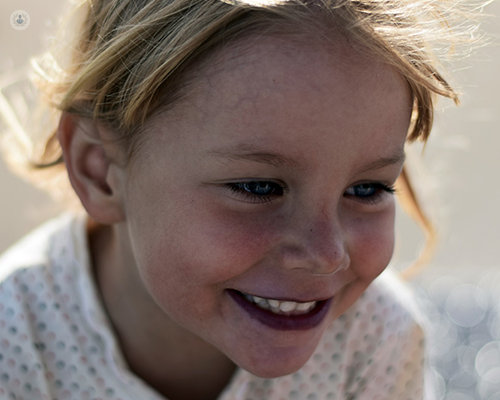Luxturna gene therapy for reversing sight loss
Autore:When a child is born with the mutation of a gene that’s responsible for eye function, vision can be severely impaired. Scientists are consistently working on the development of gene and cell therapies to prevent vision loss and complete blindness. Professor James Bainbridge is a leading ophthalmologist and surgeon-scientist who works in the field of gene therapy for vision. He provides a brief guide about a recently developed treatment called Luxturna for the RPE64 gene.

What is Luxturna?
Voretigene Neparvovec (Luxturna) is a new treatment for a rare form of childhood blindness that’s caused by a genetic deficiency of the enzyme RPE65. To discover if you or your child has an RPE65 mutation, you’ll need to undergo genetic testing.
What’s RPE65?
This enzyme is responsible for the creation of a protein that is needed for vision: it’s required for night vision and to maintain healthy daylight vision into adulthood. Children with RPE65 gene mutations and who are deficient in the RPE65 enzyme are born with no night-vision and typically develop progressively severe impairment of daylight vision by adulthood.
How does Luxturna work?
Luxturna essentially consists of a suspension (a mixture) of particles, each containing healthy copies of the gene that the patient doesn’t have. The particles used in Luxturna are based on virus particles that have been modified in the laboratory to deliver the genes safely and efficiently to the eye.
The Luxturna is injected into the retina by a surgical professional such as an ophthalmologist. They use keyhole microsurgery to perform the operation that takes approximately one hour to perform. Luxturna offers the possibility of improved night vision and protection of daylight vision. The benefit of this treatment is likely to be greatest in children and young adults than in older adults.
After this injection, the healthy RPE65 gene begins working by allowing the retina to produce healthy RPE65 enzymes. In many patients, vision is improved gradually over time as the eye produces healthy enzymes instead of mutated ones.
Are there side effects?
Side effects are possible. These range from eye infections to increased eye pressure. It’s also possible that cataracts and changes to the retina may occur. However, before undergoing this treatment, patients and the parents of young patients will receive a full explanation of the benefits and risks of Luxturna.
Could Luxturna cure other eye diseases?
Luxturna is the first of a new generation of treatments for sight impairments that are caused by genetic disease. There are many causes of genetic disease and Luxturna can only be expected to help RPE65 deficiency. However, similar treatments for children affected by other genetic deficiencies are likely to become available in the future.
Professor Bainbridge is a leading ophthalmologist who treats many common eye conditions as well as genetic eye diseases. Click here to get in touch.


